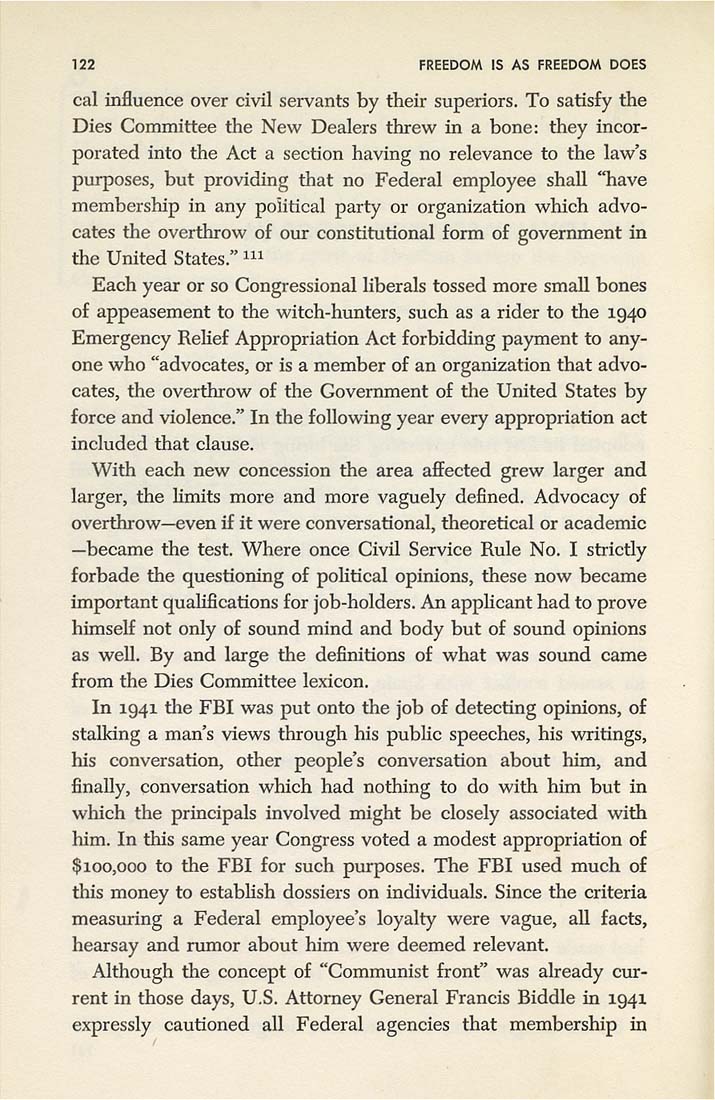122 FREEDOM IS AS FREEDOM DOES
eal influence over civil servants by their superiors. To satisfy the
Dies Committee the New Dealers threw in a bone: they incor¬
porated into the Act a section having no relevance to the law's
purposes, but providing that no Federal employee shall "have
membership in any pohtical party or organization which advo¬
cates the overthrow of our constitutional form of government in
the United States." "^
Each year or so Congressional liberals tossed more smaU bones
of appeasement to the witch-hunters, such as a rider to the 1940
Emergency Relief Appropriation Act forbidding payment to any¬
one who "advocates, or is a member of an organization that advo¬
cates, the overthrow of the Government of the United States by
force and violence." In the following year every appropriation act
included that clause.
With each new concession the area affected grew larger and
larger, the hmits more and more vaguely deflned. Advocacy of
overthi'ow-even if it were conversational, theoretical or academic
—became the test. Where once Civil Service Rule No. I stiictly
forbade the questioning of political opinions, these now became
important qualifleations for job-holders. An applicant had to prove
himself not only of sound mind and body but of sound opinions
as well. By and large the definitions of what was sound came
from the Dies Committee lexicon.
In 1941 the FBI was put onto the job of detecting opinions, of
stalking a man's views through his public speeches, his writings,
his conversation, other people's conversation about him, and
finally, conversation which had nothing to do with him but in
which the principals involved might be closely associated with
him. In this same year Congress voted a modest appropriation of
$100,000 to the FBI for such purposes. The FBI used much of
this money to estabhsh dossiers on individuals. Since the criteria
measuring a Federal employee's loyalty were vague, all facts,
hearsay and rumor about him were deemed relevant.
Although the concept of "Communist front" was already cur¬
rent in those days, U.S. Attorney General Francis Biddle in 1941
expressly cautioned all Federal agencies that membership in
|








